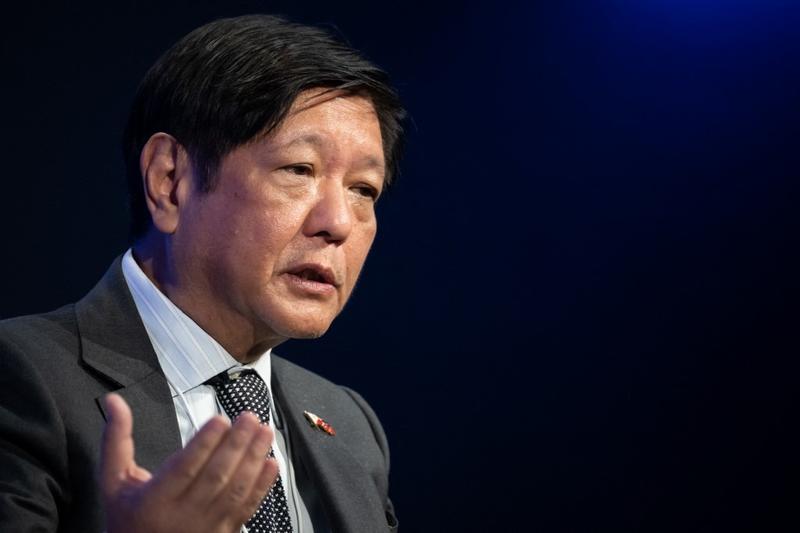 Philippine President Ferdinand Marcos Jr speaks during a session at the Congress center during the World Economic Forum (WEF) annual meeting in Davos on Jan 18, 2023. Marcos arrives in Japan on Feb 8, 2023 for a visit that is expected to pave the way for closer security ties with Tokyo. (PHOTO / AFP)
Philippine President Ferdinand Marcos Jr speaks during a session at the Congress center during the World Economic Forum (WEF) annual meeting in Davos on Jan 18, 2023. Marcos arrives in Japan on Feb 8, 2023 for a visit that is expected to pave the way for closer security ties with Tokyo. (PHOTO / AFP)
TOKYO/MANILA – Philippine President Ferdinand Marcos Jr arrives in Japan on Wednesday for a visit that is expected to pave the way for closer security ties with Tokyo.
Marcos and Prime Minister Fumio Kishida are expected to deepen cooperation in disaster relief, a possible precursor to establishing a broader legal framework that would allow Japanese forces to deploy to the Philippines more easily.
Philippine President Ferdinand Marcos Jr's first visit to Japan since taking office in July comes after he signed an agreement last week granting the United States greater access to its military bases
"As the United States deepens its relationship with the Philippines, it's important for regional security that Japan join in," a Japanese defense ministry source with knowledge of internal discussions on national security told Reuters. He asked not to be identified because he is not authorized to talk to the media.
Marcos's first visit to Japan since taking office in July comes after he signed an agreement last week granting the United States greater access to its military bases.
ALSO READ: WWII slavery victims in Philippines urge Japan to admit war crimes
At a press briefing last week, Neil Imperial, the Philippines Assistant Secretary for Asian and Pacific Affairs, said Marcos wanted to "facilitate closer defense, security, political, economic and people-to-people ties" while in Japan.
A year ago, Japan and Australia signed a visiting forces agreement, allowing them to deploy forces on each other's soil, with Tokyo concluding a similar accord with Britain last month.
"The Philippines is a critical security partner for Japan," said Narushige Michishita, a professor at the National Graduate Institute for Policy Studies (GRIPS) in Tokyo.
READ MORE: Philippine banana growers plead for Japan to bear price hikes
By gaining access to bases in the Philippines, Japan would extend the range of its defense forces, including surveillance aircraft that could patrol the South China Sea, according to Ken Jinbo, a professor at Keio University in Japan, who also served as a government security advisor.
"One thing people are watching out for during President Marcos' visit, is whether Japan will agree to provide infrastructure assistance now that the United States has access to the nine bases there," he said.



